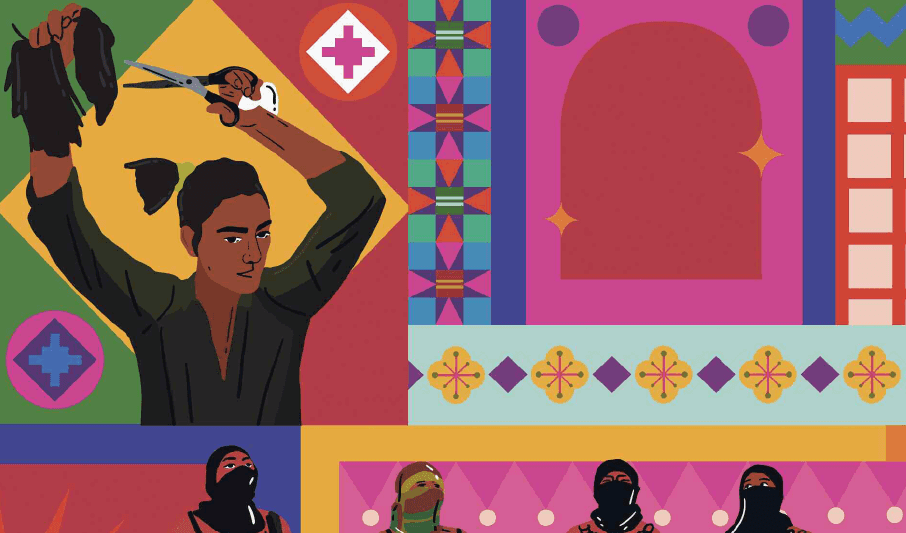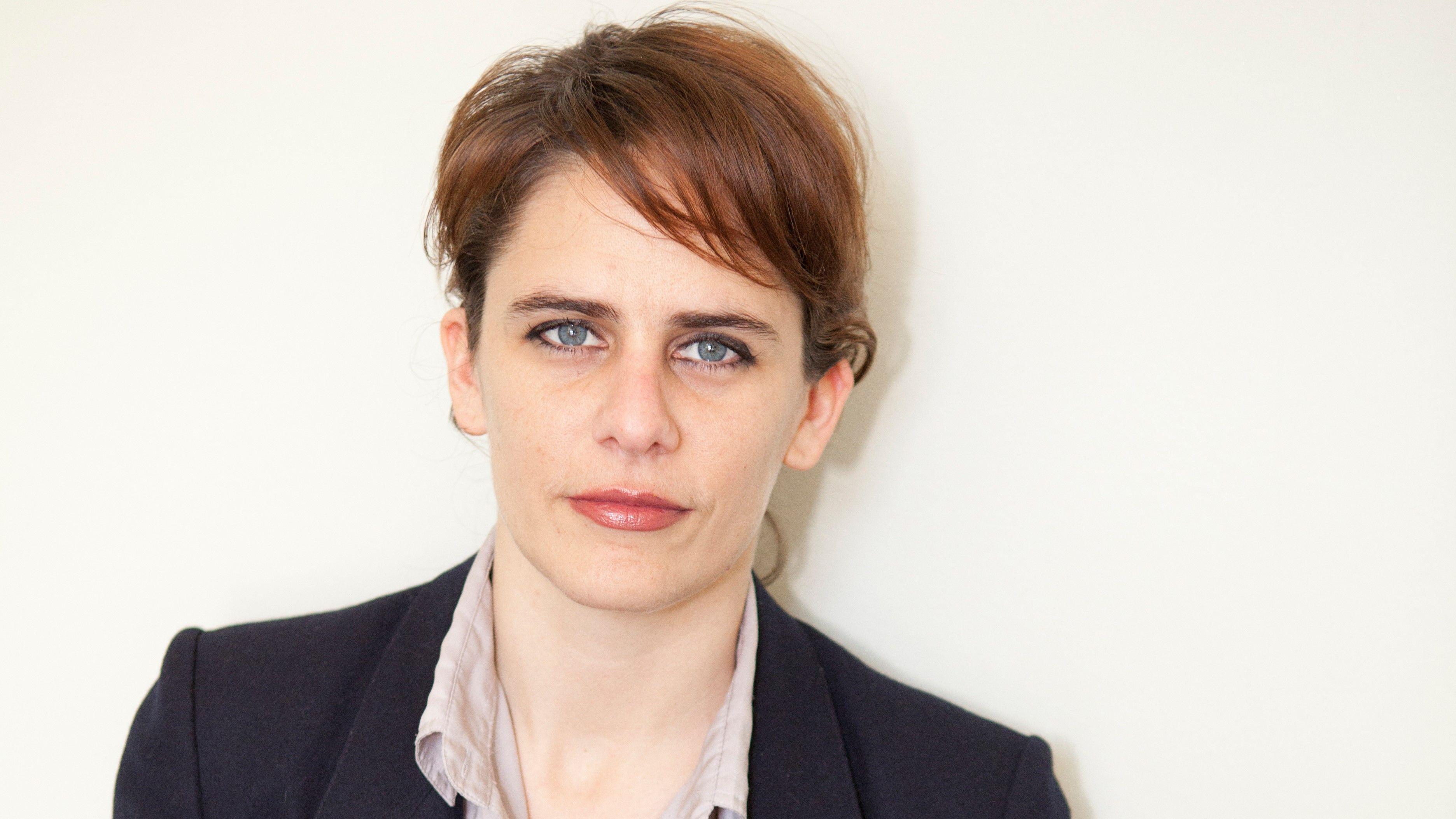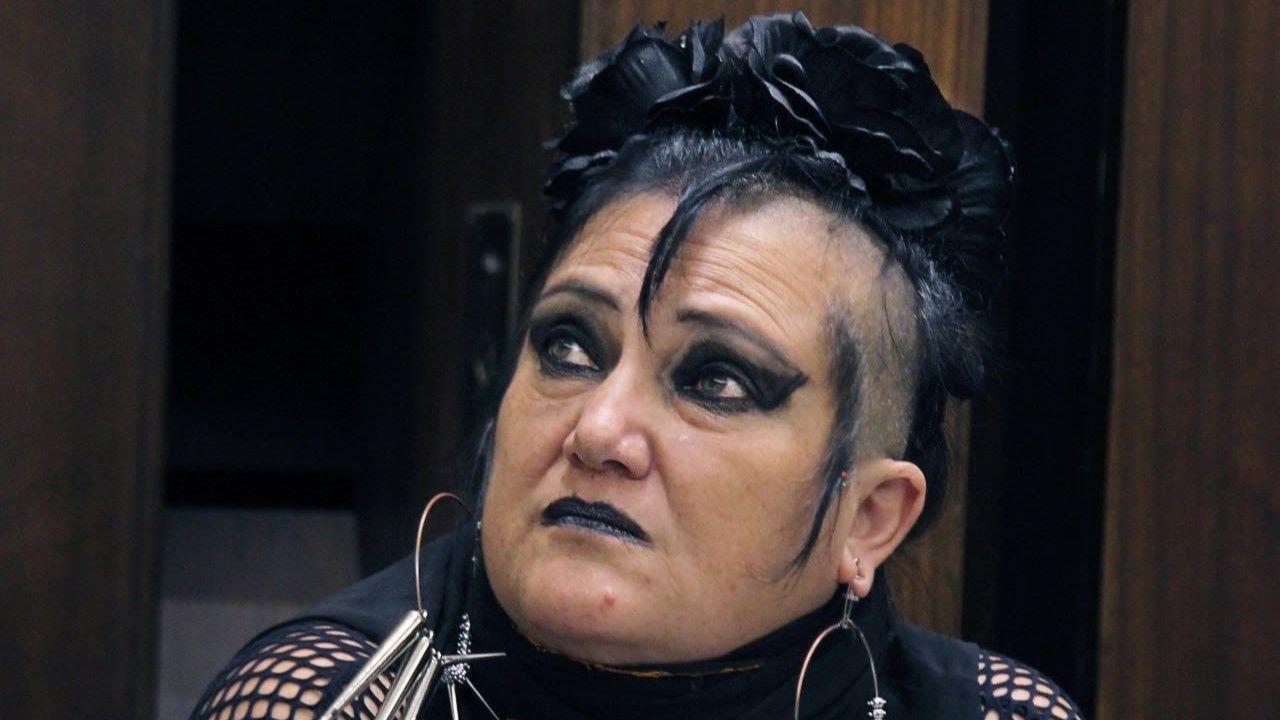“Hoping for another future!”
In the lead up to the gathering “Beyond Equality: Feminisms Reclaiming Life”, we met with Margarita Tsomou and María Galindo. Margarita Tsomou is part of the collective curating the gathering. María Galindo is a cult figure in Latin American feminism.
Allianz Foundation: “Dear María, the “Beyond Equality Gathering” will be taking place in Berlin at the end of June. Are you looking forward to meeting so many activists, and what do you expect from the gathering?”
María Galindo: “Yes, I’m very happy! Even the name of the gathering underlines its importance. There are meetings across the world by women, of women’s groups, of politicians: but this time it’s not about equality, it’s about overcoming the concept of equality – that’s unique! Now we can, now we should hope for other futures, ideas for the future, future hopes as only equality.”
Allianz Foundation: “So you’re not fighting for the right to equality. Instead, you’re fighting for what?”
María Galindo: “Revolution! For real and structural change. The talk of equality in capitalism, in liberalism, as well as neo-liberalism causes great confusion. It sounds positive, even though it’s an empty concept. That’s why it’s important to make progress in language.”
Allianz Foundation: “And what to do you expect from the gathering?”
María Galindo: “It will be interesting to see what happens at the gathering in Berlin. There is a very strong mix of women invited. Usually you have Europeans, with migrants, but without participants from the South. Or guests from the South and then no one from the North! But it is important that we mix, geographically as well, because then the views are different.”
Allianz Foundation: “Margarita, what are you looking forward to and why did you get this gathering started?”
Margarita Tsomou: "This gathering exists because we want to bring together different perspectives. And those that I think are the most interesting feminist perspectives. For me, they are those in Iran, Kurdistan, or Latin America. There we see that feminism is not just the gender question or the question of equality. The gender question is not an extra question beyond the questions that move the world. It is one of the key questions. Feminists are leaders of entire movements, including revolutionary movements, anti-capitalist movements, anti-extractivist movements, and ecological movements. That means feminism is not another question in the discussion about rights or equality, feminism is actually a method, a project for structural transformation. Selecting guests is a political, not a geographical challenge. I assembled a curator collective from these contexts because I think that’s where it gets interesting! The diasporic community from Berlin is joins us as well.
Allianz Foundation: “What are your plans for the gathering?”
Margarita Tsomou: “The gathering is a method for researching together through a collective process. That means the gathering is a process of thinking together, and it is only there that we will develop the results. We need to approach the conference as open-ended. It is a working meeting! We want to work together and there are questions at the beginning, not answers. We want to have discussions about war, about borders, about social issues, about revolutions, about the police, about the state. That means it is a conference where we all learn, not just show what we are capable of. That’s what I’m looking forward to - for us to come together with all our different perspectives. I believe we’ll learn a lot from each other. That’s what’s going to happen at the conference: People who have never spoken coming together for the first time.”
Allianz Foundation: “As a foundation, we support Risktakers, who are people like you, María. People who take risks for better living conditions for the next generations. From an activist perspective, what does our side need to contribute? What can we do, what do we need to do to support you?”
María Galindo: “That’s not an easy question. It is very important to stop seeing the fight through a lens of victimhood or as martyrdom. These struggles mean life, they mean joy. If we continue to understand struggles as tragedies, no one will join us. What can you do for us? Leave behind your arrogance. This isn’t about your support. Support would mean you don't have your own agenda. We have to fight together. It takes all of us and everyone can participate. We are risking our lives, of course. That’s true, but it’s also true that we have to break the logic of victimhood.”
Allianz Foundation: “Margarita, what do we need to learn and how can alliances help us when you look at European feminist struggles?”
Margarita Tsomou: “Nations trap us in certain frameworks. Abortion law varies nationally. For example, in Greece we have a very, very liberal abortion law, much more liberal than in Germany. You might think that the north is more enlightened. That’s a misconception. I must fight for the right to abortion differently in Germany than in Greece. I believe we’re mistaken if we think that the European North invented feminism or it claims ownership for the concept of feminism in a certain way. As if women in the South haven’t always not only fought but organized whole societies! Feminism in the global South organizes communities, organizes for food sovereignty, even organizes ways of governing. From my point of view, Northern Europe is lagging behind in regard to discussions on the phenomena of individual discrimination. Maybe we even need to find other terms than “feminism.” We talked about Muhlerism, the Kurds say “Womens Liberation Movement”.”
Allianz Foundation: “Can we nationalize these struggles at all, or does it stay a global struggle?”
Margarita Tsomou: “Nations limit us in our radius. We offer an internationalist perspective at the gathering. This not only transcends nations, it assumes that as subalterns we all have the same interests, no matter which country we live in. We weave a internationalist network that goes beyond the way nations are governed. It’s an internationalist gathering. I don’t even know if it’s global feminism or planetary feminism. It just doesn’t exist yet, there’s no global feminist government yet. This is what we are taking on.”
Allianz Foundation: “What kind of world do you want to leave behind for future generations, María?”
María Galindo: “I have no patience. I don’t want to think about the next generation and fight for the next generation as a grandma. We need so many things for our life right now! We need hope now, we need mass organization now, we need space for culture and art now. I would like to think about today rather than future generations. I know that future generations will have new questions, ones I’ll have nothing to do with. But the most important thing is the moment, our now. We shouldn’t lose sight of the goal of revolution, even if it is in the future. We also shouldn’t lose sight of the term “feminism” but give it other interpretations. So, what world do we want to leave behind? A world ready for another revolution!”
Margarita Tsomou: “I agree with that, especially considering the threat of fascism. We are experiencing authoritarian turns in Europe and for me an increasing number of things are becoming less easy to say. There’s an authoritarian turn within liberal democracies. In the past few weeks here in Germany, we have seen bans on demonstrations, raids against climate activists, bans on assemblies, anti-fascists being put in jail. It is a historic task to keep the space open so that future generations can even ask their questions. In light of the political climate, it’s crucial for me right now. It can’t just be done the day after tomorrow. We have to seize the momentum now, otherwise this authoritarian turn will be normalized. That’s why I believe that if we fight for change today, we’re fighting for future generations as well. That’s why I would say we have to change today so that the others can change anything at all.”
María Galindo: “I wanted to add that with the gathering I also expect we’ll attack the concept of identity. It shouldn’t let to identity wars. It doesn’t matter if you’re trans or who you are. Reducing ourselves to identity warfare means losing. It can’t just be about racism. We need the connections between the different problems. We need to overcome identity as a fighting term for that.”
Allianz Foundation: “Dear María, dear Margarita, thank you for having this conversation with us.”


